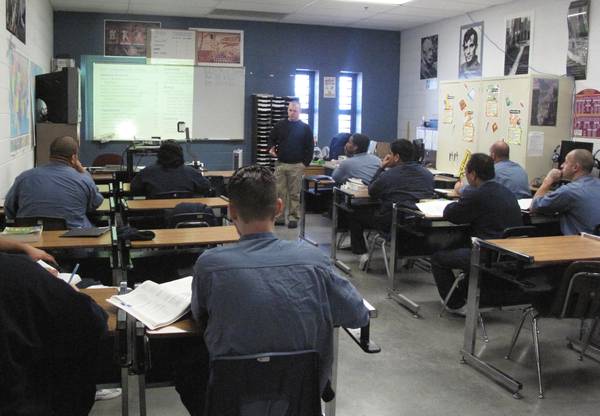CARSON CITY — A national push toward criminal justice reform has made its way to Nevada, where lawmakers are eyeing changes including the right to vote for felons.
Assembly Speaker Jason Frierson, D-Las Vegas, is sponsoring the disenfranchisement bill and says the state is certainly new to criminal justice reform.
“We have discussed it over the years, but I think this is the first time that in a bipartisan way folks are recognizing that we could actually save taxpayer dollars and protect the public better by being more responsible with how we use our money in the criminal justice system,” Frierson said.
Some states have scaled back from America’s tough-on-crime era with reforms, such as reducing long sentences for drug crimes and instituting more diversion and re-entry programs.
While disagreements persist when it comes to the death penalty and other issues, former Texas Gov. Rick Perry is among those to join the movement toward reforms.
“It started in Texas, Kentucky,” Frierson said. “Actually, quite frankly, Republican governors have now nationally started this movement.”
In a recent Houston Chronicle op-ed, the energy secretary said the then-estimated $2 billion price tag for Texas prison expansion in 2007 would not have been money well spent. Perry said putting people in prison was leaving many worse off and more likely to reoffend.
Frierson says this movement has taken a more bipartisan tone as it becomes clear high incarceration rates are expensive and don’t do much to deter repeat offenders.
“If we can be more responsible with dollars, reduce recidivism and, more important than anything, protect the public, then I think it’s worth considering,” Frierson said.
Assembly Bill 181 would restore the right to vote and serve on a civil court jury for some felons. It’s up for a hearing today in the Senate Judiciary Committee.
Senate Bill 125 would have provided voting and jury rights for felons. Sponsored by Sen. Aaron Ford, D-Las Vegas, the bill was gutted in committee to leave only provisions related to petitions to seal criminal records.
The original bill was contentious in the Senate, passing to the Assembly with a 12-9 vote.
“We both started out wanting to address this problem,” Frierson says. “We didn’t care which bill, as long as it got addressed.”
Frierson said he has a background in law, with experience as a prosecutor and defense attorney.
“I have some experience about how it’s applied in the actual real world that helped, and so he and I agreed that he would proceed with the record sealing language in his bill that he’s worked really hard on and I was going to proceed with the rights restoration work that I had quite frankly started drafting several years ago,” he said.
Several other criminal justice measures are making their way through the Legislature, from pot convictions to technology for inmates. The bills have received no votes from some Republicans and others, with concerns raised about issues such as mandatory rather than permissive language as well as the scope of a proposed policy.
Assembly Bill 259 would set out how courts would decide petitions to have certain marijuana convictions vacated. The bill was amended before the Senate passed it Tuesday with a 12-9 vote, and now heads back to the Assembly for consideration.
Assembly Bill 268 on post-conviction DNA testing is in the Senate and recently passed out of committee. The bill would allow felons to petition to pay for DNA analysis, and has drawn Republican and Democrat concern about its breadth.
Senate Bill 268 deals with pre-release services for inmates, such as helping them with paperwork needed to get a driver’s license or some other identification they are eligible for. The bill is awaiting a vote in the Assembly.
Sen. Tick Segerblom, D-Las Vegas, chairman of the Senate Judiciary Committee sponsoring the bill, has said the measure is a major step toward helping former inmates obtain the identification necessary to secure services such as food stamps.
Assembly Bill 420 would allow inmates to use phones, cellphones or computers to correspond with family as well as search for jobs and find educational enrichment. The bill has yet to come up for a Senate vote, and has raised concerns about security.
Assembly Bill 384, the so-called Ban the Box measure, would generally eliminate the consideration of criminal histories for state job applicants until after a conditional employment offer has been made, among other provisions. The bill is up for a Senate vote after being amended and clearing committee on May 17.
Frierson says criminal justice reform is about economics as well as safety.
“The goals behind it are to be responsible with taxpayer dollars in a bipartisan way that keeps in mind protecting the public but also being smart with how we spend our money,” he said.


Join the Discussion:
Check this out for a full explanation of our conversion to the LiveFyre commenting system and instructions on how to sign up for an account.
Full comments policy